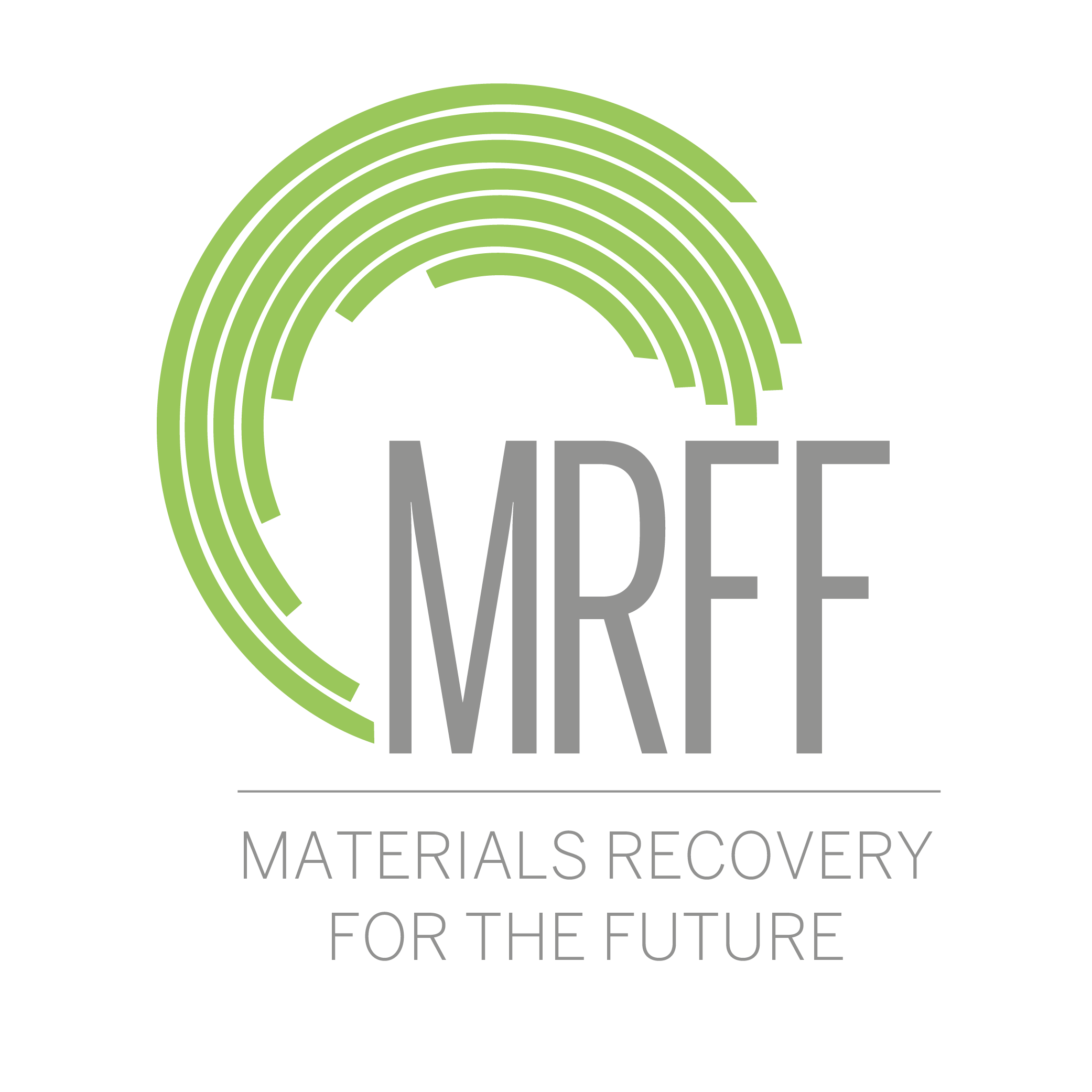RRS is proud to announce its role in designing a new research program – Materials Recovery for the Future – to understand and enhance recovery solutions for flexible packaging. RRS will begin by testing the potential of currently available MRF sorting technologies to improve separation of flexibles. Data from this work will shed light on the future path to greater diversion of this material. Read more about this initiative below:
First-of-its-kind Study to Examine Recovery of Flexible Packaging Using Existing Technology
 WASHINGTON, DC (September 15, 2015)—An industry collaborative has announced new research aimed at recovering more packaging that is currently destined for landfill. The project, Materials Recovery for the Future, brings together brand owners, manufacturers, and packaging industry organizations that are committed to enhancing recovery solutions for increasingly popular flexible film and packaging options. Some common forms of flexible packaging include resealable food packages; pouches for soups; tuna; pet food bags; and snack bags.
WASHINGTON, DC (September 15, 2015)—An industry collaborative has announced new research aimed at recovering more packaging that is currently destined for landfill. The project, Materials Recovery for the Future, brings together brand owners, manufacturers, and packaging industry organizations that are committed to enhancing recovery solutions for increasingly popular flexible film and packaging options. Some common forms of flexible packaging include resealable food packages; pouches for soups; tuna; pet food bags; and snack bags.
“Flexible packaging offers many benefits we take for granted. It typically uses less energy and materials than other packaging options, helps extend food shelf life and minimize spoilage, and reduces waste by preserving and protecting products until they are consumed,” said Jeff Wooster, Global Sustainability Director, Dow Packaging and Specialty Plastics. “This new sortation research is critical in helping to close the recovery loop for flexible packaging and we are committed to this collaboration to drive solutions for increased recovery rates.”
Resource Recycling Systems (RRS) who developed the test methodology will conduct the first phase of the research, which will include baseline testing of the existing sortation technologies commonly used in material recovery facilities, such as screens and optical scanners. A representative mix of the flexible packaging generated by consumers will be created and added at an appropriate concentration to single stream recyclables for testing. This mixed stream will be run through the sorters, and the amount of flexible packaging captured in the resulting bale will be measured to determine sorting effectiveness.
“The research is first to use this methodology to study the movement of films and flexible plastic packaging at material recovery facilities in the United States. We believe that data from this collaborative research will help us learn how to recover and divert more valuable resins from landfills,” said Diane Herndon, Manager, Sustainability, Nestlé Purina PetCare Company.
This research effort represents a first step in what will be a series of projects aimed at creating a mainstream recovery solution for flexible packaging. Results are expected to be published in the second quarter of 2016.
Project sponsors include The Dow Chemical Company, PepsiCo, Procter & Gamble, Nestlé Purina PetCare and Nestlé USA, Sealed Air, and SC Johnson, as well as the Association for Postconsumer Plastic Recyclers (APR), the Flexible Packaging Association (FPA), and SPI: The Plastics Industry Trade Association (SPI).
Materials Recovery for the Future is an initiative of the Research Foundation for Health and Environmental Effects (RFHEE), a 501(c)(3) tax-exempt organization established by the American Chemistry Council.
###
Media Contact Jennifer Killinger, Jennifer_Killinger@americanchemistry.com